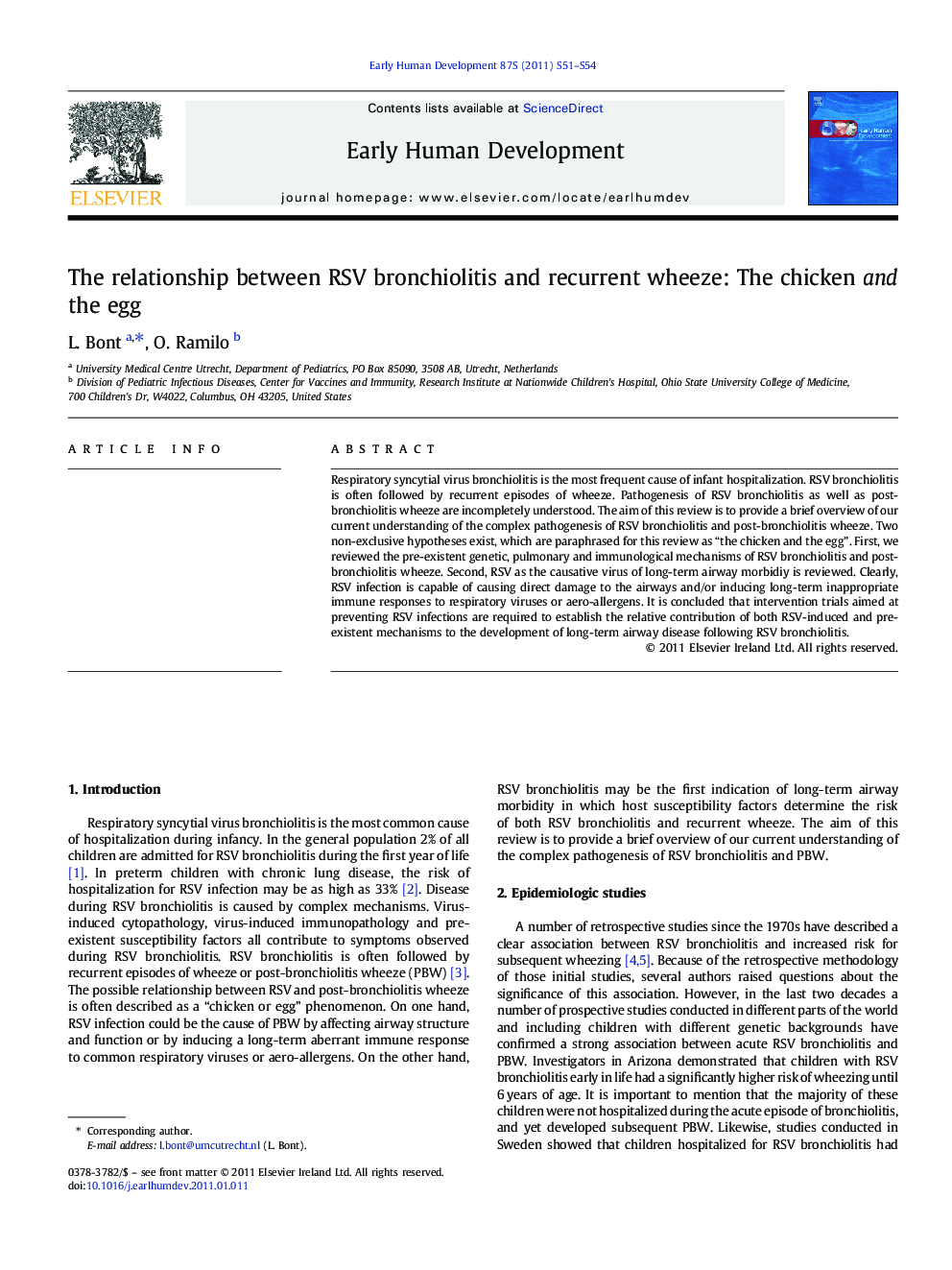| Article ID | Journal | Published Year | Pages | File Type |
|---|---|---|---|---|
| 3917462 | Early Human Development | 2011 | 4 Pages |
Respiratory syncytial virus bronchiolitis is the most frequent cause of infant hospitalization. RSV bronchiolitis is often followed by recurrent episodes of wheeze. Pathogenesis of RSV bronchiolitis as well as post-bronchiolitis wheeze are incompletely understood. The aim of this review is to provide a brief overview of our current understanding of the complex pathogenesis of RSV bronchiolitis and post-bronchiolitis wheeze. Two non-exclusive hypotheses exist, which are paraphrased for this review as “the chicken and the egg”. First, we reviewed the pre-existent genetic, pulmonary and immunological mechanisms of RSV bronchiolitis and post-bronchiolitis wheeze. Second, RSV as the causative virus of long-term airway morbidiy is reviewed. Clearly, RSV infection is capable of causing direct damage to the airways and/or inducing long-term inappropriate immune responses to respiratory viruses or aero-allergens. It is concluded that intervention trials aimed at preventing RSV infections are required to establish the relative contribution of both RSV-induced and pre-existent mechanisms to the development of long-term airway disease following RSV bronchiolitis.
